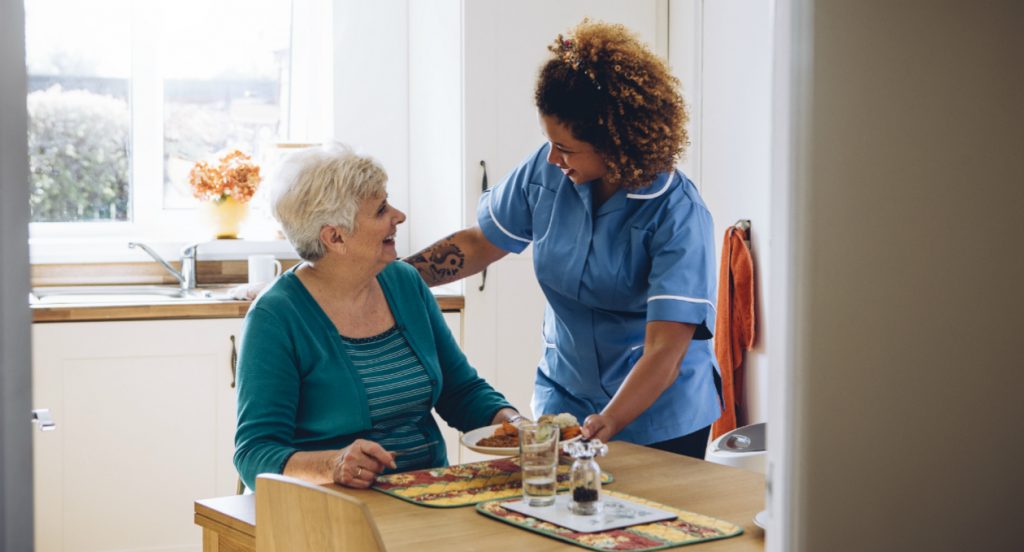When Bette Davis said “Old age ain’t for sissies”, she hit the nail on the head. It’s not all smooth sailing. The truth is, ageing is a bit of a bumpy road for many of us and it’s not always one that can be navigated alone.
But there seems to be this idea that you’re either a ‘super-ager’ or you’re a failure. As if it’s not normal to expect that there’ll be a few adjustments along the way. Like wearing hearing aids or a pair of glasses, or using a walker for a bit of help with stability and getting on your feet.
What is a super-ager? It’s that person who takes up marathon running in their 70s, lives to see out an entire century or jumps out of a plane for their 90th birthday. It’s that small group of older people who can do amazing things that, truth be told, the majority of us just can’t.
Of course these are wonderful examples of ageing well and are admirable feats that make for very inspiring breakfast television viewing, but we need to be careful that we don’t fall into the trap of believing these stories are the norm when they’re propped up on a pedestal before us.
One of the reasons we know why some people live such a long and healthy life is because they have good genetics – and luck plays a part in this too. We’ve all heard the stories of that person who smoked and drank for their whole lives and yet lived to be 97, while others may have done everything ‘right’ and died unexpectedly young or developed a chronic illness.
Between the two extremes, there’s a whole lot of variation in the middle. And if we take a realistic view of ageing, this grey area is where most of us fall and where we can expect to need a little – or maybe a lot – of help, depending on our individual circumstances.
Why are we too proud to accept help?
In my experience though, I’ve seen lots of people who, when they’re offered services, say “no” or “I don’t need that” and be too proud to accept it. Particularly that generation who is very old now – there’s this mentality that you “just get on with things”, you survive, you do it yourself. They are the battlers.
The Baby Boomer generation tends to have its own view on it and often they seem to think: “Well, I’m never going to need those services.” But in reality, if you live long enough, you will. It’s the rare person who doesn’t.
Part of this I think comes back to our own internal ageism, which means we can end up being ageist to ourselves. But also, we’ve got to get away from this notion that aged care services are welfare services. They’re not. What they’re actually about is empowerment – giving you that little nudge and a bit of assistance to help you live better.
We’ve got to get away from this notion that aged care services are welfare services. They’re not. What they’re actually about is empowerment – giving you that little nudge and a bit of assistance to help you live better.
It doesn’t equate to relinquishing control over your own life. Don’t see it for what you may feel like you’re losing. See it for what you’re gaining – the assistance to live as independently as possible, for as long as possible.
Especially now that we have the gift of longevity, we’re all going to live longer. So the question is: how will we live well in the extended life that we’re all going to have? We might leave the workforce and have another 30 years of life. So these services need to be seen not as “you’re a problem” but “how can we support you as you get older and things start to change?”
Everybody needs a little help sometimes
Everyone needs help at different times in their life – both young and old – it’s just that the type of help changes. Once upon a time, it’d might’ve been a neighbour who looked after the kids for an hour while you ducked to the shops. Now, it might be that a home care provider ducks in for an hour or so every week to help vacuum the house, or a family member that drives you to your appointments if you can no longer drive. That’s a realistic thing to expect.
But being heroic and stoic and saying “I can do all this on my own” is not so helpful in the end, because letting in services actually assists to reduce stress in your life, get connected with other people, and enhance your life.
When we look up the biology of ageing, most of us are not going to be those super agers. It’s a biological fact that if you live long enough, there will be some level of decline because, at the end of the day, we are animals. So whether it’s from a formalised service or your next door neighbour, remember: accepting help is not an acceptance of defeat.
Whether it’s from a formalised service or your next door neighbour, remember: accepting help is not an acceptance of defeat.
Help is just that: help. It doesn’t make you a failure. And it doesn’t mean you’re entering this kind of conveyor belt of decline. It’s quite the opposite. It’s there to lift you up and make life easier.


